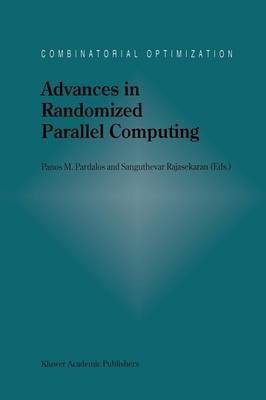Advances in Randomized Parallel Computing(English, Paperback, unknown)
Quick Overview
Product Price Comparison
The technique of randomization has been employed to solve numerous prob- lems of computing both sequentially and in parallel. Examples of randomized algorithms that are asymptotically better than their deterministic counterparts in solving various fundamental problems abound. Randomized algorithms have the advantages of simplicity and better performance both in theory and often in practice. This book is a collection of articles written by renowned experts in the area of randomized parallel computing. A brief introduction to randomized algorithms In the aflalysis of algorithms, at least three different measures of performance can be used: the best case, the worst case, and the average case. Often, the average case run time of an algorithm is much smaller than the worst case. 2 For instance, the worst case run time of Hoare's quicksort is O(n ), whereas its average case run time is only O( n log n). The average case analysis is conducted with an assumption on the input space. The assumption made to arrive at the O( n log n) average run time for quicksort is that each input permutation is equally likely. Clearly, any average case analysis is only as good as how valid the assumption made on the input space is. Randomized algorithms achieve superior performances without making any assumptions on the inputs by making coin flips within the algorithm. Any analysis done of randomized algorithms will be valid for all p0:.sible inputs.


